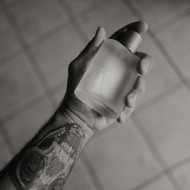Why Perfume Smells Different on You Than It Does on Others
Posted by MAIR on Sep 4th 2025
Have you ever fallen in love with a fragrance on someone else, only to try it on yourself and notice it smells completely different? This is one of the fascinating mysteries of perfume, and it all comes down to chemistry, lifestyle, and even the environment around you.
Perfume is not static; it interacts with the body. The natural oils on your skin, your pH level, and your body temperature all influence how notes develop. A fragrance with warm vanilla might smell sweeter on one person and more subdued on another because of the skin’s unique chemistry. This is why perfume houses often encourage sampling directly on skin rather than relying on a blotter or bottle sniff. If you’ve ever read our piece on why perfume should be part of your self-care routine, you’ll see that this individuality is part of what makes fragrance so empowering.
Diet and lifestyle also play a surprising role. Spicy foods, alcohol, and even medications can subtly change body chemistry and affect how long a perfume lingers or which notes are most pronounced. A fragrance may feel airy and light on someone with a different diet but richer and more intense on another.
Environment and climate shape the scent experience too. A perfume worn in humid New York summer air will unfold differently than it does in cool autumn evenings in Paris. Heat amplifies top notes, making citrus or floral accords sparkle, while cold weather slows evaporation and highlights deeper woods, ambers, and musks. Our blog on PerfumeTok trends shows how younger consumers experiment with layering scents precisely to adapt fragrance to their surroundings.
Even fabric and application method matter. Spraying perfume on clothes can preserve the scent’s original composition, while skin chemistry evolves it into something unique. The same fragrance on silk, cotton, or directly on the wrist will tell slightly different stories. This also explains why some people keep older perfumes, sometimes even vintage bottles, as a way to preserve the scent as it was originally created. If that topic interests you, read our guide on how to store perfume for decades.
What makes this phenomenon beautiful is that it turns fragrance into something deeply personal. When you wear a perfume, it’s no longer just the perfumer’s vision; it becomes your own signature, evolving with you throughout the day. This individuality is also what drives emotional connection to scent, which we explored in our piece on the hidden impact of microplastics on our sense of smell.
So next time a perfume smells different on you than it does on your friend, consider it a reminder of individuality. Scent is chemistry, but it’s also identity, and the way it adapts to you is what makes fragrance such a personal form of expression.

